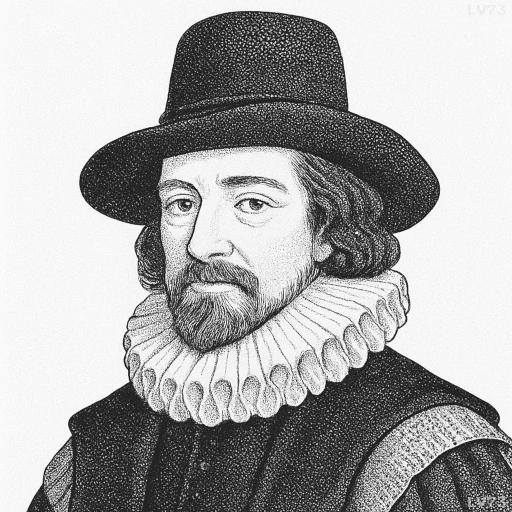“I had rather believe all the Fables in the Legend, and the Talmud, and the Alcoran, than that this universal frame is without a Mind.”

- January 22, 1561 – April 9, 1626
- Born in England
- Philosopher, theologian, jurist, politician, aristocrat
table of contents
Quote
“I had rather believe all the Fables in the Legend, and the Talmud, and the Alcoran, than that this universal frame is without a Mind.”
Explanation
In this quote, Francis Bacon expresses a deep conviction in the idea that the universe is not a random or mindless existence, but rather that it has an inherent purpose or intelligence guiding it. Bacon suggests that he would rather believe in the mythologies, religious texts, and sacred writings of various traditions—the Legend, the Talmud, and the Alcoran (the Koran)—which offer spiritual or supernatural explanations of the world, than accept the notion that the universe exists without a divine or intelligent mind behind it. His statement reflects a strong belief in order and purpose in nature, rather than randomness or chaos. Bacon’s view aligns with the Renaissance and early modern ideas of the Cosmos, which were increasingly understood to be governed by rational principles, often linked to the belief in a divine intellect or design.
Bacon’s perspective mirrors the growing scientific and philosophical interest in the relationship between religion and nature during the Renaissance. During this time, many thinkers, including Bacon, sought to reconcile faith with emerging ideas about the natural world, where the presence of a divine mind was seen as essential for the existence of order and rationality in the universe. Bacon, being a philosopher and scientist, likely believed that the laws of nature and the order of the cosmos could not be explained without attributing them to a higher intelligence or mind.
In modern times, this quote resonates with the ongoing philosophical and theological debates about the existence of a higher power or intelligent design in the universe. Bacon’s statement underscores a common argument in favor of the idea that the complexity and order of the world suggest the presence of a purposeful intelligence, whether that intelligence is understood as God, nature, or some form of universal consciousness. Bacon’s preference for a universe with a guiding mind rather than one without suggests a spiritual or metaphysical outlook that continues to influence discussions on the nature of existence, cosmology, and the interplay between science and faith.
Would you like to share your impressions or related stories about this quote in the comments section?
